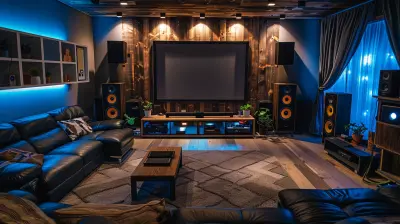The Pros and Cons of Smart Locks for Home Security
13 June 2025
Imagine walking up to your front door, arms full of groceries, and instead of fumbling around for your keys, your door just… opens. Like magic. Welcome to the world of smart locks.
We’re living in an age where our thermostats talk to our phones, fridges remind us to buy milk, and yes—our doors can lock and unlock themselves. But do smart locks truly make life easier and safer, or are they just flashy gadgets with potential vulnerabilities?
If you’re toying with the idea of swapping out your old-school deadbolt for a digital update, you’re not alone. But before you take the plunge, it’s worth diving into both sides of the coin. Let’s break down the pros and cons of smart locks for home security and see if they’re really the right fit for your lifestyle.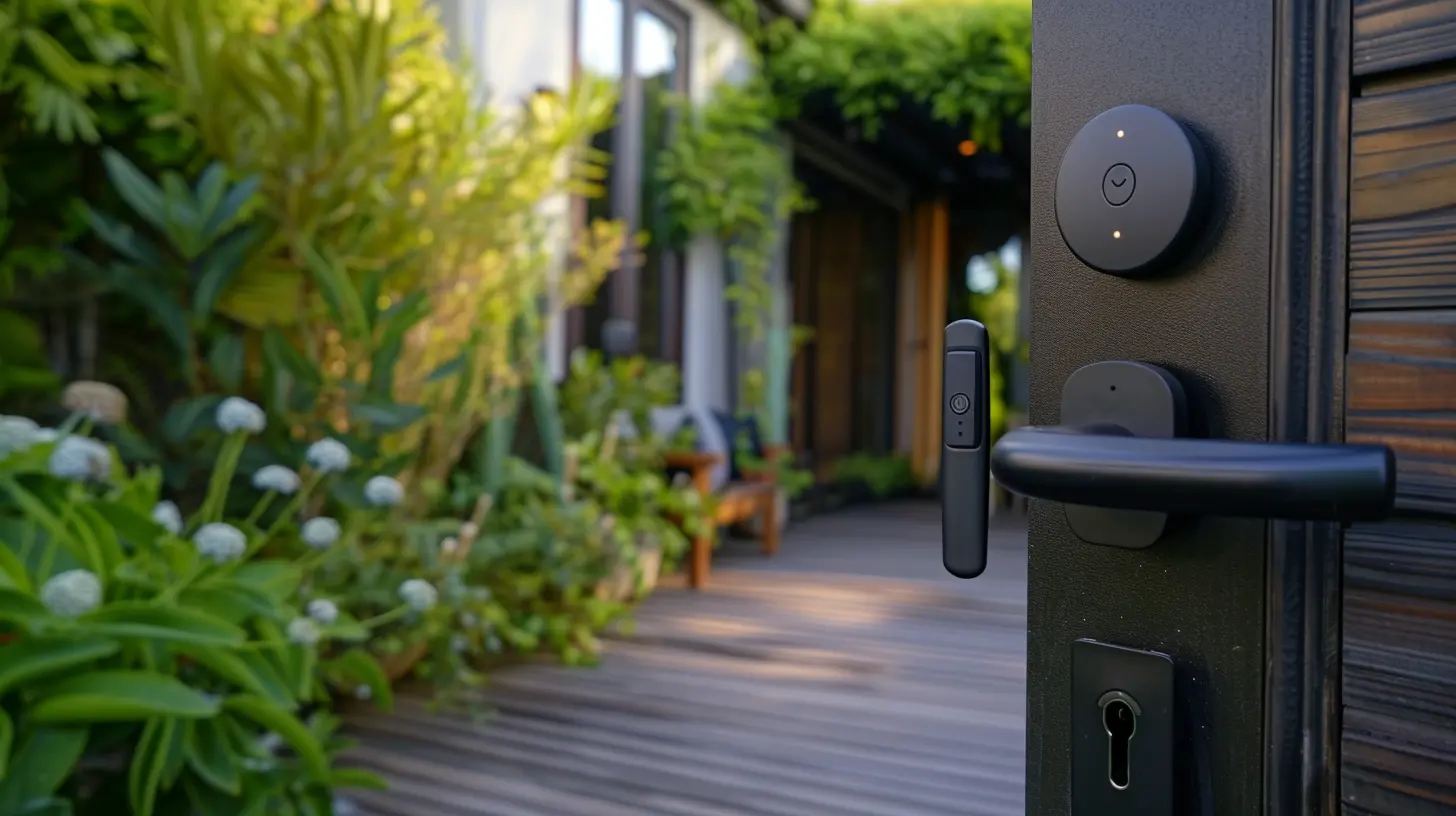
What Exactly Is a Smart Lock?
First things first. What is a smart lock, anyway?In plain language, a smart lock is an electronic, Wi-Fi or Bluetooth-enabled lock that allows you to lock and unlock your door without using a traditional key. Instead, you might use your smartphone, a key fob, a fingerprint, or even a voice assistant like Alexa or Google Assistant. Some models even let you control access remotely—meaning you can unlock your door for a guest while you’re lying on a beach in Bali (cue the envy).
Cool, right? But with great tech comes great responsibility… and a few caveats.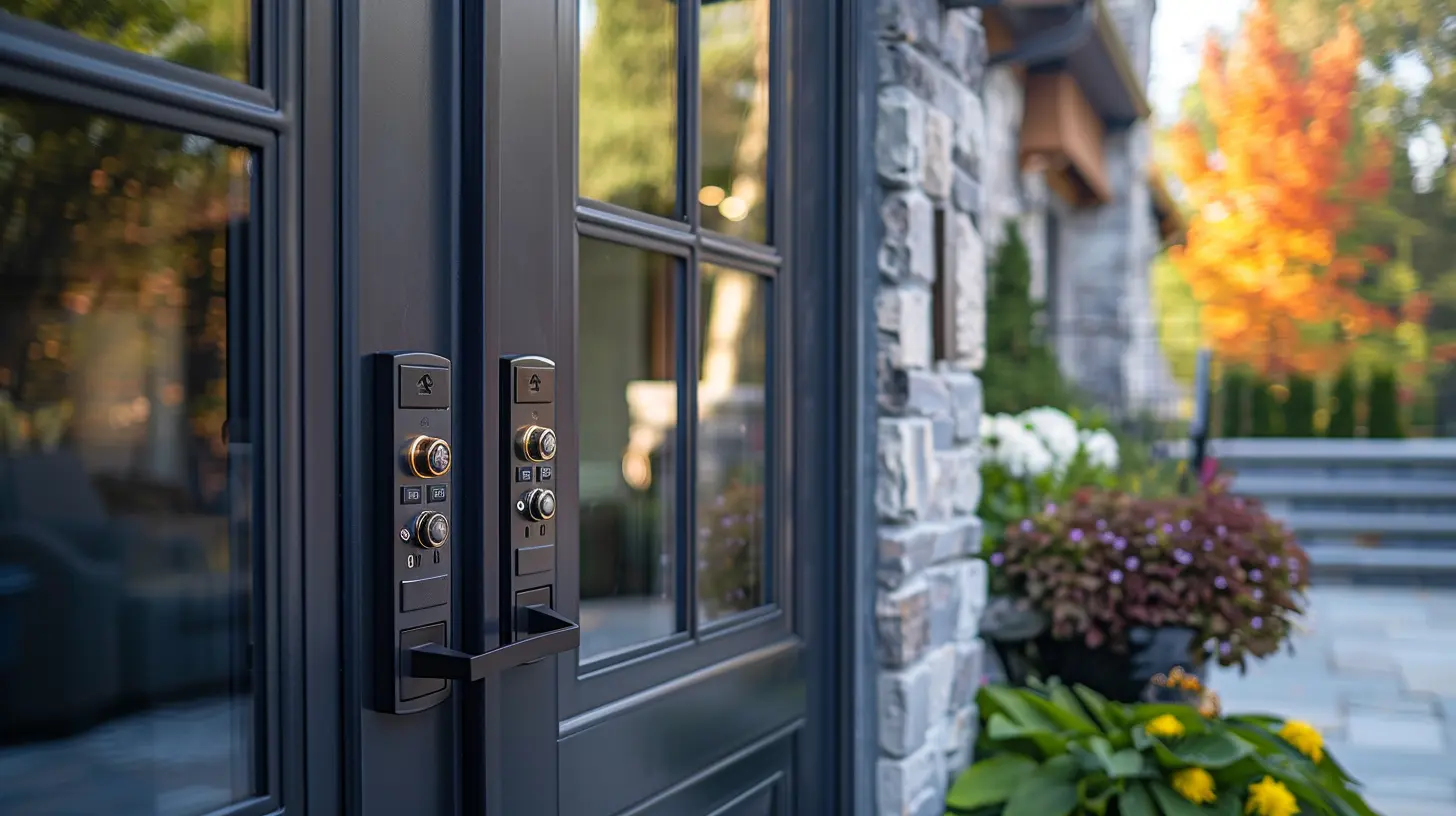
🟢 The Pros of Smart Locks
1. Keyless Convenience
Let's be honest—keys are kind of a pain. You lose them, forget them, or worse, get locked out at the worst possible time.With a smart lock, you can say goodbye to all that. Whether it's unlocking your door via an app, keypad code, or fingerprint scanner, the ease of use is a definite game-changer. You’ll especially appreciate this when you’re juggling groceries, kids, or walking the dog.
Bonus points: You can give temporary access to friends, family, or service providers without making extra copies of keys.
2. Remote Control and Monitoring
Ever left the house and thought, “Did I lock the door?”Smart locks have your back. Most models allow you to check lock status from your phone—and lock or unlock it remotely. Some even send real-time alerts if someone opens the door or tampers with the lock.
This kind of control is a big win for peace of mind, especially if you’re traveling or have a habit of second-guessing yourself.
3. Custom Access Permissions
If you’ve ever left a spare key under the doormat (guilty), you’ll love this feature.Smart locks let you create custom codes or digital keys for different people. You might give one to your dog-walker that only works Mondays through Fridays between 1 and 3 PM. Or maybe your Airbnb guests get a code that expires after their stay.
It’s like having personalized lock profiles for everyone—and you get to see who comes and goes, and when.
4. Integration with Smart Home Systems
If you’ve already dipped your toes into the smart home pool (think smart lights, cameras, thermostats), a smart lock fits right in.Many smart locks work seamlessly with home automation platforms. Imagine saying, “Hey Google, I’m going to bed,” and your lights turn off, thermostat adjusts, and your door locks—all at once. It’s like living in the future.
5. Added Security Features
Some advanced smart locks come with built-in alarms, auto-lock timers, or tamper alerts. These features can provide an extra layer of protection that standard deadbolts just don’t offer.Plus, having a visible smart lock might deter would-be intruders who realize there’s high-tech security on your door.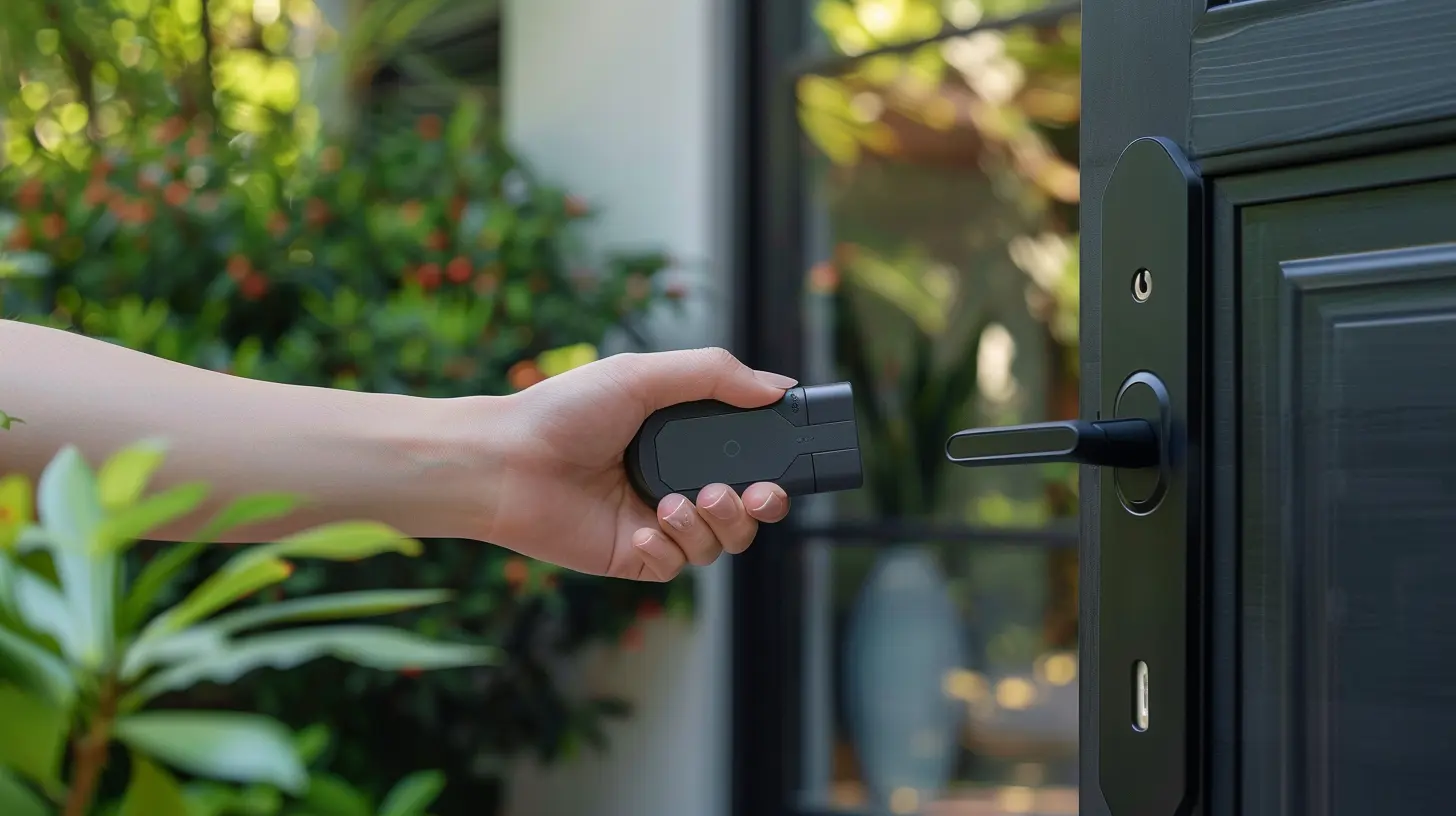
🔴 The Cons of Smart Locks
Alright, time to flip the coin. As cool as smart locks are, they’re not perfect. Here's where things get a bit tricky.1. Tech Glitches and Connectivity Issues
Any device that relies on apps, Wi-Fi, or Bluetooth is bound to have hiccups.Signal drops, app crashes, slow firmware updates—they all can leave you temporarily locked out or unable to control your lock. In rare cases, bugs in the system can cause locks to fail or malfunction.
And let’s be real—there’s something unsettling about your front door depending on your smartphone’s battery.
2. Power Dependency (What If Battery Dies?)
Smart locks aren't powered by magic—they run on batteries. And like all batteries, they die eventually.Most models will warn you when the battery is low, but in the hustle of daily life, it’s easy to ignore alerts. If the battery dies completely… boom, you’re stuck. Some locks have backup options like a physical keyhole or emergency charging cable—but not all.
If you're the forgetful type, this might be a big deal.
3. Potential Hacking Risks
This is probably the biggest red flag for many homeowners. The idea that someone might hack your lock remotely sounds straight out of a heist movie. Yet, in reality, anything connected to the internet comes with a degree of vulnerability.While reputable brands use encryption and security protocols, no system is 100% foolproof. And as smart locks become more common, hackers are getting more creative.
The takeaway? Just like with your Wi-Fi router, always update firmware, use strong passwords, and stick with trusted brands with a good security track record.
4. Higher Upfront Costs
Smart locks don’t come cheap. While a traditional deadbolt might set you back $20–$40, smart locks can cost anywhere from $100 to over $300.Add installation costs or optional smart home hubs and it adds up fast. And if you want top-tier features—like biometric access or integration with premium home automation systems—you’ll pay a premium.
It’s a solid investment, but it’s still… an investment.
5. Reliability in Emergencies
Here’s a scenario: There’s a power outage or your phone is dead. Can you still get into your house?Some smart locks offer backup keys or emergency access methods. Others, not so much. And in emergency situations (like fires or forced evacuations), having to fiddle with an app might be the last thing you want.
When it comes to emergencies, simplicity often wins.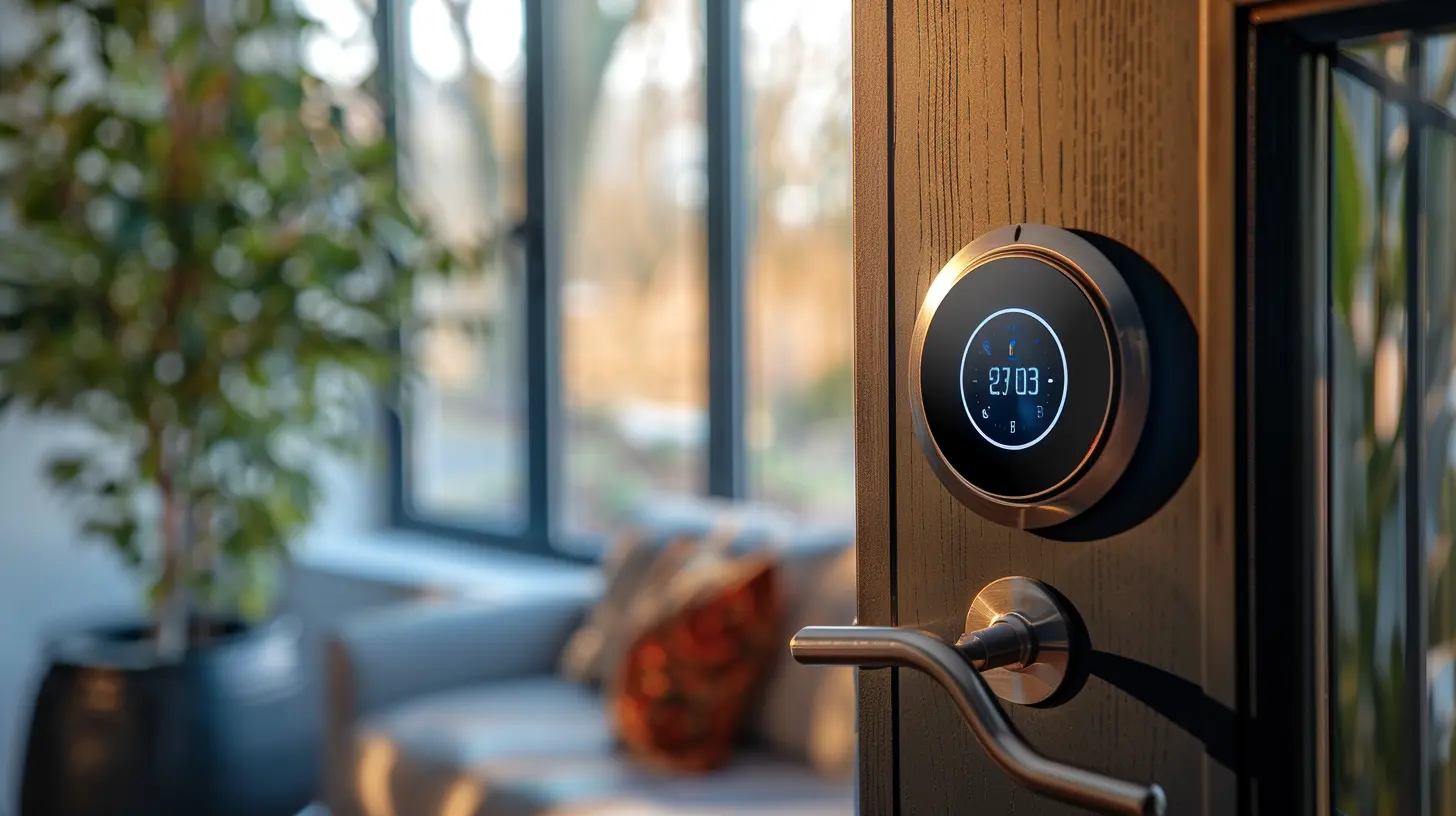
So, Are Smart Locks Actually Safer?
Ah, the million-dollar question.Short answer: Yes and no.
Smart locks can offer better visibility, more custom control, and added features that traditional locks just can’t match. But they also come with potential downsides—mostly tied to tech reliability and digital security.
In reality, smart locks should be seen as part of a broader home security ecosystem. Pair them with cameras, motion sensors, and a solid alarm system, and your home is pretty well-covered.
On the flip side, if you install a smart lock and ignore software updates, use “1234” as your access code, or buy a cheap model from an unknown brand… you’re not doing yourself any favors.
Who Should Consider Smart Locks?
Let’s be real—not everyone needs a smart lock. But for certain people, they make a ton of sense.You might want to consider jumping aboard if:
- You often forget or lose your keys
- You’re an Airbnb or short-term rental host
- You have kids or roommates who need access
- You’re already invested in a smart home setup
- You appreciate having remote control and monitoring
On the flip side, if you live in an area with spotty Wi-Fi, prefer simple mechanical devices, or have serious cybersecurity concerns, you might want to stick with traditional locks for now.
Wrapping It Up
So, should you get a smart lock? Honestly, it depends on your lifestyle, your comfort with tech, and your security needs.Smart locks offer undeniable convenience and could seriously upgrade your home’s security game—especially when integrated with other smart systems. But they’re not a set-it-and-forget-it solution. You’ll need to be tech-savvy enough to manage updates, care for the battery, and stay on top of any security issues.
At the end of the day, the best lock is the one that fits your life, keeps you safe, and gives you peace of mind—smart or not.
So, would you trust your front door to your smartphone?
all images in this post were generated using AI tools
Category:
Smart HomeAuthor:

John Peterson
Discussion
rate this article
2 comments
Zia McKellar
Great insights on smart locks! It's essential to weigh the benefits against potential drawbacks. With the right precautions and understanding of technology, smart locks can significantly enhance home security. Embracing innovation while staying informed is key. Looking forward to implementing some of these tips in my own home!
June 19, 2025 at 2:37 AM

John Peterson
Thank you! I'm glad you found the insights helpful. Staying informed is indeed crucial for making smart choices in home security. Good luck with your implementation!
Lila Wright
Smart locks offer convenience and remote access but may pose security risks if improperly managed.
June 13, 2025 at 12:36 PM

John Peterson
Thank you for your comment! You're absolutely right—while smart locks provide great convenience, proper management is crucial to mitigate potential security risks.
